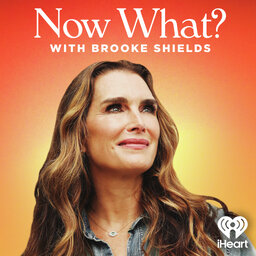Actor-director Andrew McCarthy (Pretty in Pink, St. Elmo’s Fire) chats with Brooke about the nostalgia surrounding '80s films and how he struggled to be taken seriously after his Brat Pack fame. Andrew shares how he flew under the radar as a successful travel writer and details his most profound trip yet: a 500-mile walk along the Camino de Santiago with his eldest son.
 Now What? with Brooke Shields
Now What? with Brooke Shields


